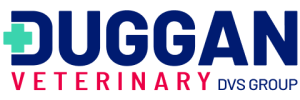Who is this course suitable for?
This course is aimed at the small animal GP practitioner at any level. Particularly those with an intrigue in ultrasound or who wish to improve their clinical acumen with regards to utilizing imaging in their comprehensive diagnostic work-ups.
What are my differentials for this icteric patient? Would an exploratory laparotomy be the best next step for this patient? Is my patient improving with medical management? Should we rule out abdominal neoplasia in this older patient? Ultrasound is undoubtedly a wonderful intermediary between medicine and surgery and can be invaluable in guiding your next steps in patient care.
Why does the course span 12 months?
We understand that sometimes it is just not possible to put aside the number of hours required each month to complete a certificate. What with busy GP work and that all important work-life balance, we aspired to design a course that requires no more than 2 hours of commitment each month but will, over the duration of this study, allow you to have developed dramatically in a field of Veterinary that many find so daunting.
Course aims:
- Become familiar with your ultrasound machine (you can bring your machine to the practical sessions should you wish)
- Understand basic ultrasound physics
- Learn how to continuously optimize your image
- Be able to confidently perform a basic systematic abdominal ultrasound
- Study common pathologies and differentials for lesions visualized with ultrasound in every abdominal organ system in more detail
- Delve in to the AFAST® and TFAST® with practical assistance in scanning the thorax
- Learn to describe ultrasonographic lesions, develop comprehensive differential lists and write a thorough ultrasound report
- Understand the bigger picture utilizing radiographs as a synergistic imaging modality
- Practice performing ultrasound guided fine needle aspirations
How many delegates will be on this course?
The course will be delivered online and in person to a small group of 10-12 delegates. You will develop your ultrasound skills together on the practical days and be involved in informal, group-based case discussions online.
What will the curricular structure look like each month?
For the practical sessions, a full day of attendance is required at Duggan Veterinary’s state of the art CPD campus in Thurles, County Tipperary. These practical sessions will allow you to implement your knowledge in a hands-on manner in small groups of 2-3 delegates guided by Rosie Ellis.
The interspersed online sessions will be in the form of a 1 hour webinar delivered by our speaker Rosie Ellis. These interactive lectures have been composed specifically for this course to ensure as detailed coverage of the topic of small animal abdominal ultrasound as possible. The webinars will either cover a detailed set of topics, as outlined in the module plan, or take the form of a set of interactive case studies.
The remaining hour allocated each month is for your personal ultrasound practice, reading around the subject or completing an ultrasound case study that Rosie will occasionally send via email for your own interest.
On the final practical session, we will gather at Duggan Veterinary’s campus and spend some time focussing on areas you feel you would like more assistance in and additionally achieve practical experience in scanning the thorax. Following this, there will be a short, informal and fun quiz to summarize your learning in this fascinating field of Veterinary Medicine.
